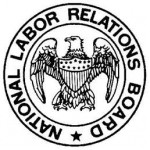Ombuds Perspective on Whistleblowing Laws
![]() Last week, we had wonderful talk entitled Blowing the Whistle on Whistleblowing Laws. Attorney Charles L. (Chuck) Howard is one of the few attorneys in the U.S. with extensive expertise in the legal issues of ombudsmen. Howard has a national practice in representing organizational ombudsmen at universities, multinational corporations, and research institutions. His new book, entitled The Organizational Ombudsman: Origins, Roles and Operations–A Legal Guide, was just published by the American Bar Association (ABA) and is the nation’s definitive resource book about ombudsmen, mediation, and their impact in the workplace.
Last week, we had wonderful talk entitled Blowing the Whistle on Whistleblowing Laws. Attorney Charles L. (Chuck) Howard is one of the few attorneys in the U.S. with extensive expertise in the legal issues of ombudsmen. Howard has a national practice in representing organizational ombudsmen at universities, multinational corporations, and research institutions. His new book, entitled The Organizational Ombudsman: Origins, Roles and Operations–A Legal Guide, was just published by the American Bar Association (ABA) and is the nation’s definitive resource book about ombudsmen, mediation, and their impact in the workplace.
In this presentation, he explored how fear of retaliation limits the effectiveness of whistleblower laws and policies. There are hundreds of whistleblower laws in the United States that provide incentives for people to report misconduct and prohibit retaliation against them for doing so. While recoveries from laws like the False Claims Act are significant, the perception — and often the reality — of what happens to whistleblowers who do come forward is that they pay dearly for their actions. In addition to trying to reward whistleblowers, why are we not also looking for better ways to help people address workplace conflict or misconduct without having to be a whistleblower? Howard argued that an organizational ombudsman can help an organization address this gap between encouraging the reporting of misconduct and protecting those who raise issues.
Several of my students’ comments about the talk are below:

